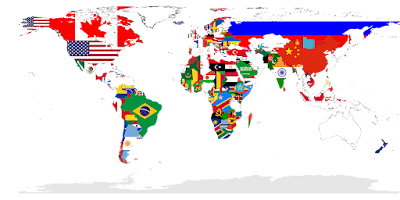INR GOES GLOBAL 18 COUNTRIES AGREE TO TRADE IN INDIAN RUPEES
In
a significant move, eighteen countries have agreed to start trading in Indian
Rupees, making it a global currency. The move is aimed at strengthening
economic ties and increasing trade between India and other countries. This
decision will provide an impetus to India's goal of making the Rupee an
international currency.
The
countries that have agreed to trade in the Indian Rupee include Nepal, Bhutan,
Myanmar, Sri Lanka, Maldives, United Arab Emirates, Iran, Iraq, Yemen, Bahrain,
Oman, Qatar, Saudi Arabia, Syria, Jordan, Lebanon, and Egypt. This is a
significant development for India as it provides the country with the
opportunity to expand its trade and investment activities in the region.
The
agreement to trade in the Indian Rupee will not only benefit India but will
also provide several advantages to other countries. First, it will eliminate
the need for foreign exchange transactions, thereby reducing the cost of doing
business. Second, it will provide stability to the exchange rate, making it
easier for countries to plan and execute their trade and investment activities.
Third, it will provide an opportunity for countries to diversify their foreign
exchange reserves, thereby reducing their dependence on a single currency.
The
move to trade in the Indian Rupee has been welcomed by the Indian government,
which has been working towards making the Rupee an international currency. The
government has taken several steps in this direction, such as opening up the
Indian bond market to foreign investors and liberalizing the foreign exchange
regulations.
The
agreement to trade in the Indian Rupee is also significant for India's banking
sector. Indian banks will now be able to provide trade financing facilities in
Indian Rupees, which will help them to expand their business in the region.
This move will also help Indian banks to reduce their dependence on the US
dollar, which is the dominant currency for trade financing.
The
move to trade in the Indian Rupee has been welcomed by Indian businesses, who
see it as an opportunity to expand their business in the region. Indian
companies will now be able to negotiate deals in Indian Rupees, which will
eliminate the need for foreign exchange transactions and reduce the cost of
doing business. This will also provide Indian companies with an opportunity to
expand their customer base in the region.
The
move to trade in the Indian Rupee is also significant for the Indian economy.
It will provide a boost to India's exports, as it will make Indian products
more competitive in the international market. It will also help to attract
foreign investment into the country, as it will provide investors with a stable
currency for their investments.
The
agreement to trade in the Indian Rupee is a significant development for the
global economy. It will provide countries with an opportunity to diversify
their foreign exchange reserves and reduce their dependence on a single
currency. It will also provide stability to the exchange rate, making it easier
for countries to plan and execute their trade and investment activities.
In
conclusion, the move to trade in the Indian Rupee is a significant development
for India and the global economy. It will provide several advantages to
countries, including reducing the cost of doing business, providing stability
to the exchange rate, and diversifying foreign exchange reserves. This move
will also help India to achieve its goal of making the Rupee an international currency
and provide a boost to the Indian economy.













0 Comments